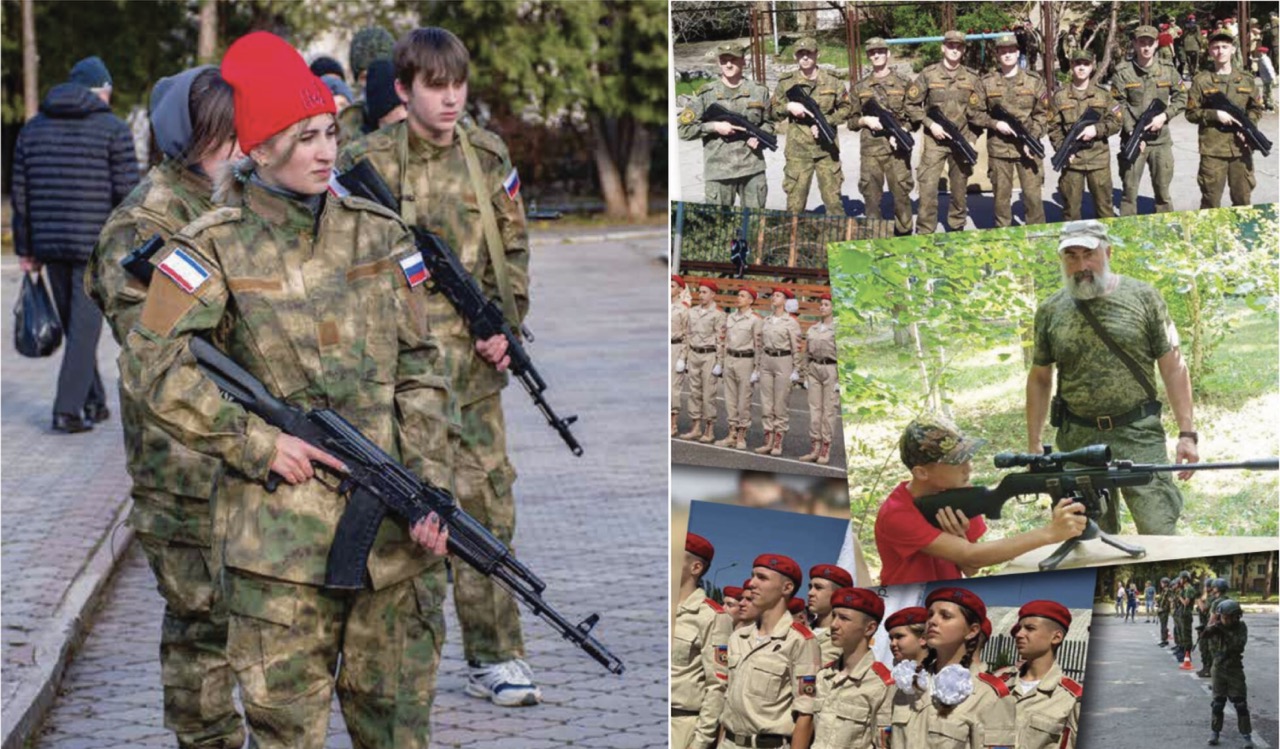Mykola Sedykh and Stas Balytskyi were eight years old when Russian occupation began in Donetsk Oblast. Now, they wear Russian military uniforms after years in cadet schools—victims of war crimes who may return to Ukraine as occupiers.
Ukraine faces a generation gap Russia engineered through decade-long indoctrination campaigns. Since 2014, Moscow has deported children from Donetsk Oblast orphanages and shelters, subjected them to years of pro-Russian propaganda in cadet schools, and channeled them into military service once they reach conscription age, according to an investigation by Ukrainian online newspaper Texty. The two young men now of legal age—Mykola Sedykh and Stas Balytskyi—exemplify how children removed from Ukrainian institutions become part of Russia's occupation forces, potentially returning to fight against their homeland.

Weaponizing childhood vulnerability
Eight-year-old Mykola Sedykh spent four years in a Khartyzsk shelter between 2015 and 2019, where Russian paramilitaries from the "Pyatnashka" brigade regularly visited, bringing gifts and displaying weapons, Texty found. For children without parental protection, these armed men became heroes rather than invaders. The International Committee of the Red Cross recently clarified that propaganda aimed at encouraging children from occupied territories to voluntarily join enemy military service constitutes a war crime, even when presented as voluntary recruitment.
Stas Balytskyi's trajectory followed similar patterns. After losing both parents during the war, Russian propaganda outlets exploited his image for "Save Donbas Children" campaigns targeting European audiences, using orphaned children to justify Moscow's 2014 invasion while simultaneously preparing those same children for future combat roles.
The cadet conveyor belt
Both boys ended up at Donetsk Boarding School No. 1, which deported 225 children to Russia on 18 February 2022, six days before the full-scale invasion. Director Olha Volkova, decorated with medals by occupation authorities, oversaw militarization programs including Yunarmia youth army participation before.
The institution has since transformed into a militarized cadet school named after Russian cosmonaut Georgiy Beregovoy, enrolling approximately 180 Ukrainian children starting from first grade, with a Russian citizen and war participant serving as military director.
Sedykh and Balytskyi were separated into different Cossack cadet schools—Sedykh to Kropotkin in Krasnodar Krai, Balytskyi to Ruza in Moscow Oblast, Texty reported. These facilities function as military boarding schools with weapons training, parade drills, and mandatory meetings with war veterans. Sedykh's school honors Russian General Gennadiy Troshev, who advocated public executions of Chechen resistance fighters during the 1990s conflicts.
Completing the transformation
Recent photos show both young men in Russian military uniforms. Balytskyi now attends Moscow Higher Military Command School training motorized rifle commanders and military police, while Sedykh appears to have joined a Kuban Cossack military formation, likely one of the BARS units currently fighting in Zaporizhzhia, Kherson, and Donetsk oblasts.
Russia's Kuban Cossack forces deployed more than 9,200 personnel in Ukraine as of 2025. Ukrainian citizen Mykola Sedykh may soon return to Donbas—but as Nikolay (the Russian version of his name), an occupation soldier potentially fighting against his own country.
The International Criminal Court issued arrest warrants for Vladimir Putin and Maria Lvova-Belova in March 2023 for illegal child deportation. Ukraine searches for nearly 20,000 deported children, though Russia's children's rights commissioner claimed receiving over 700,000 Ukrainian minors.

